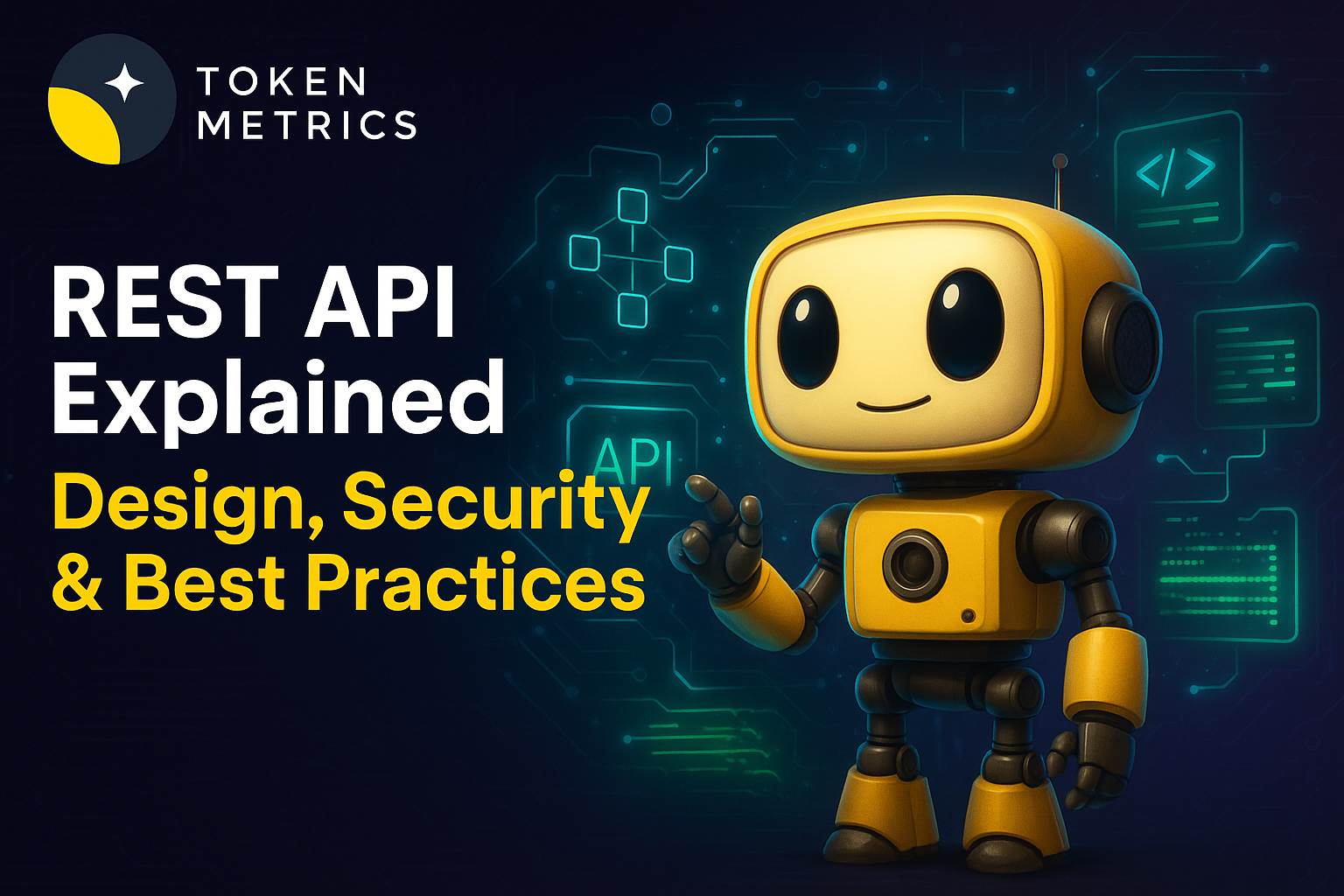REST API Explained: Design, Security & Best Practices

REST APIs are the connective tissue of modern web and mobile applications. Whether you're integrating services, building microservices, or exposing data for AI agents, a clear grasp of REST API principles helps you design interfaces that are maintainable, performant, and secure. This guide walks through the core concepts, practical design patterns, authentication and security considerations, and tooling that make REST APIs reliable in production.
What is a REST API and core principles
REST (Representational State Transfer) is an architectural style that uses standard HTTP verbs and status codes to manipulate resources. Key tenets include:
- Statelessness: Each request contains all information needed to process it; servers don’t maintain client session state.
- Resources and representations: Resources are identified by URIs; responses return representations (JSON, XML) describing resource state.
- Uniform interface: Use predictable HTTP methods (GET, POST, PUT, DELETE, PATCH) and status codes for consistent client-server interaction.
- Layered system: Clients need not be aware of whether they communicate with the origin server or an intermediary.
Understanding these principles helps when choosing between REST, GraphQL, or RPC for a given use case. REST is well-suited for CRUD-style operations, caching, and wide compatibility with HTTP tooling.
Design patterns: resources, versioning, and idempotency
Good API design starts with modeling resources and their relationships. Practical patterns include:
- Resource naming: Use plural nouns and hierarchical paths (e.g., /users/{userId}/orders).
- Versioning: Use URL or header-based versioning (e.g., /v1/ or Accept header) to avoid breaking clients.
- Idempotency: Ensure methods like PUT and DELETE can be retried safely; supply idempotency keys for POST when necessary.
- Pagination and filtering: Provide cursor-based or offset-based pagination, with clear metadata for total counts and next cursors.
Design with backward compatibility in mind: deprecate endpoints with clear timelines, and prefer additive changes over breaking ones.
Authentication, authorization, and security considerations
Security is non-negotiable. Common, interoperable mechanisms include:
- API keys: Simple and useful for identifying applications, but pair with TLS and usage restrictions.
- OAuth 2.0: Industry-standard for delegated authorization in user-centric flows; combine with short-lived tokens and refresh tokens.
- JWTs: JSON Web Tokens are compact bearer tokens useful for stateless auth; validate signatures and expiration, and avoid storing sensitive data in payloads.
- Transport security: Enforce TLS (HTTPS) everywhere and use HSTS policies; mitigate mixed-content risks.
- Rate limiting & throttling: Protect backends from abuse and accidental spikes; return clear headers that expose remaining quota and reset times.
Also consider CORS policies, input validation, and strict output encoding to reduce injection risks. Implement principle of least privilege for every endpoint and role.
Performance, observability, and tooling
Operational maturity requires monitoring and testing across the lifecycle. Focus on these areas:
- Caching: Use HTTP cache headers (Cache-Control, ETag) and CDN fronting for public resources to reduce latency and load.
- Instrumentation: Emit structured logs, request traces (OpenTelemetry), and metrics (latency, error rate, throughput) to diagnose issues quickly.
- API specifications: Define schemas with OpenAPI/Swagger to enable client generation, validation, and interactive docs.
- Testing: Automate contract tests, integration tests, and fuzzing for edge cases; run load tests to establish scaling limits.
- Developer experience: Provide SDKs, clear examples, and consistent error messages to accelerate integration and reduce support overhead.
Tooling choices—Postman, Insomnia, Swagger UI, or automated CI checks—help maintain quality as the API evolves. For AI-driven integrations, exposing well-documented JSON schemas and stable endpoints is critical.
Build Smarter Crypto Apps & AI Agents with Token Metrics
Token Metrics provides real-time prices, trading signals, and on-chain insights all from one powerful API. Grab a Free API Key
What is REST and when should I choose it?
REST is ideal for resource-oriented services where standard HTTP semantics are beneficial. Choose REST when caching, simplicity, wide client compatibility, and predictable CRUD semantics are priorities. For highly dynamic queries, consider GraphQL as a complement rather than a replacement.
How do I manage breaking changes?
Version endpoints, use feature flags, and publish changelogs with migration guides. Prefer additive changes (new fields, new endpoints) and give clients time to migrate before removing legacy behavior.
What authentication method should I implement?
Match the method to the use case: API keys for server-to-server integrations, OAuth 2.0 for delegated user access, and JWTs for stateless session claims. Always layer these with TLS and short token lifetimes.
How should I handle rate limits and abuse?
Enforce per-key and per-IP limits, surface quota headers, and provide graceful 429 responses with a Retry-After header. Use adaptive throttling to protect critical downstream systems.
Which tools help maintain a healthy API lifecycle?
Adopt OpenAPI for specs, use Postman or Swagger UI for exploratory testing, integrate contract tests into CI, and deploy observability stacks (Prometheus, Grafana, OpenTelemetry) to monitor behavior in production.
Disclaimer
This article is for educational and technical guidance only. It does not constitute legal, security, or operational advice. Evaluate risks and compliance requirements against your own environment before implementing changes.
Create Your Free Token Metrics Account

.png)




%201.svg)
%201.svg)


%201.svg)











.svg)




.png)